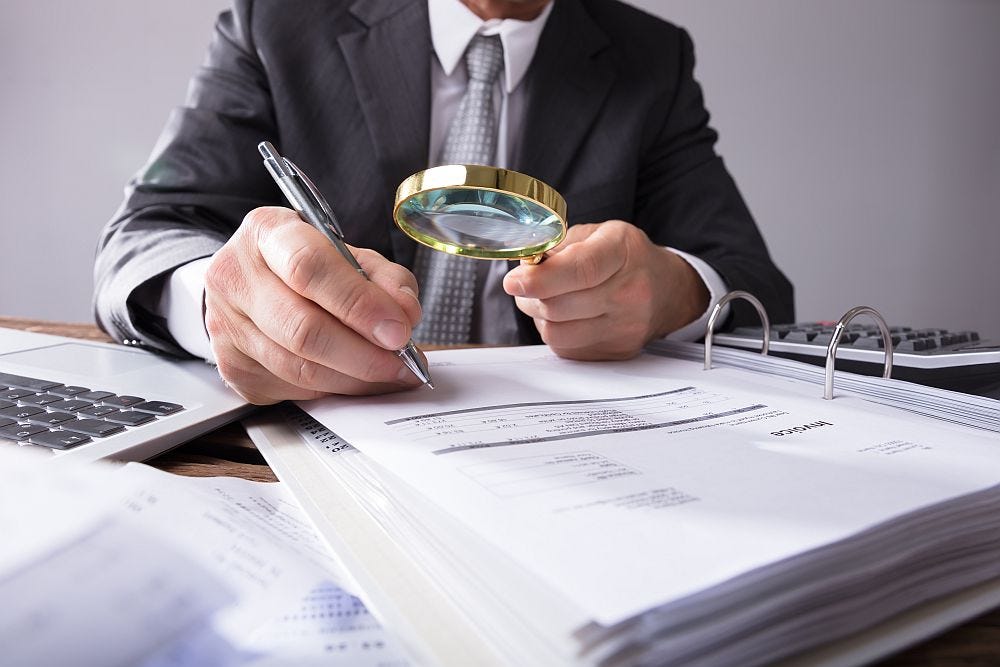Stop the bank account snoopers
In the name of stopping welfare fraud, the Labour government is proposing an astonishing set of powers to dig into everyone's finances, warns Matthew Feeney of Big Brother Watch.
The government is rushing ahead with the most expansive growth of financial surveillance in recent memory, leaving very little time for the scrutiny it deserves from MPs and members of the public. Absent significant reform, the Public Authorities (Fraud, Error and Recovery) Bill will empower the Department of Work and Pensions (DWP) to mandate private institutions to conduct population-wide scanning of our bank accounts, take money directly from the bank accounts, and adopt search and seizure powers currently reserved to police.
The government is justifying this Bill on the grounds that billions of pounds are lost every year through benefit fraud, but the remit of the Bill actually extends far beyond crime and covers administrative errors at the government's own hand. But while we all want fraud dealt with, this isn’t a genuine project to recover public money - it’s the transformation of the welfare system into a digital surveillance system.
The government usually lets at least two to three weeks pass between the introduction of legislation and its first debate. However, MPs have only been given seven working days to scrutinise its almost 120 pages. These pages contain unprecedented surveillance powers that should worry everyone who values privacy.
The Bill would require banks, building societies, credit unions and other financial institutions to search all our accounts for incorrect DWP payments. Financial institutions would be compelled to conduct population-wide generalised surveillance of its customers. Having rifled through our financial transactions, they will then be mandated to pass the names, dates of birth and account numbers of flagged individuals who meet the government’s secret criteria. It is hard to think of a financial proposal in recent history that would result in such a mass reversal of the presumption of innocence. Individuals will now be presumed guilty of welfare fraud – unless the computer says otherwise.
The real targets of this Bill are recipients of Universal Credit, Pension Credit and Employment Support Allowance. These benefits are claimed by the poorest in our society, disabled people, the elderly and carers. We all know the perils of algorithmic error – one need only recall the Horizon Scandal to understand what’s at stake. Even an error rate of one per cent in the AI systems used by banks would result in thousands of benefits recipients being falsely flagged, subjected to wrongful investigation by the state and having to undergo burdensome appeals. Even if you believe that it is worth sacrificing our privacy in the name of catching benefits cheats, you should first consider the number of innocent people who will inevitably be caught in the net.
The Bill would also empower DWP beyond financial surveillance, allowing DWP officials to apply for warrants for electronic devices such as phones and laptops. In addition, the Bill would allow these officials to accompany police on searches of homes.
Such a blurring of lines between police and DWP is concerning. In a liberal democracy, the number of government officials permitted to search our belongings and seize our property should be well defined and small. DWP is already permitted to investigate fraud and to assist the police in criminal investigations. The powers granted to DWP in the Bill represent a sledgehammer designed to crack a walnut.
We must not neglect the ‘Error’ mentioned in the title of the Bill. DWP often makes errors when distributing benefits. Almost £1 billion of DWP overpayments in financial year 2024 were attributed to official error. Many people, through no fault of their own, receive more from DWP than they should. These are not members of criminal gangs or fraudsters seeking to steal taxpayer money. Oftentimes they are deserving recipients of benefits who are receiving more than they should thanks to incompetence or honest error from DWP.
The Bill’s surveillance power is expected by the government’s own estimate to only accrue approximately £138 million in net annual revenue – which accounts for less than 1.4 per cent of the estimated annual loss to fraud and error. The vanishing returns from this gargantuan overstep mean that MPs should be asking the government whether DWP’s time might be better spent getting their own house in order rather pushing for DWP employees to act like deputised police officers.
The history of surveillance is one full of governments creating new surveillance powers and then failing to keep such powers contained. At a time when the government is pressing ahead with more data collection and sharing in the name of government efficiency, we should all be wary of granting the government with more powers to snoop on some of our most sensitive data.
Matthew Feeney is advocacy manager at Big Brother Watch. Before joining Big Brother Watch, Matthew worked at think tanks in London and Washington, DC, where he focused on a range of technology and civil liberties issues.
Find out more about Big Brother Watch’s campaign, Stop Bank Spying.



